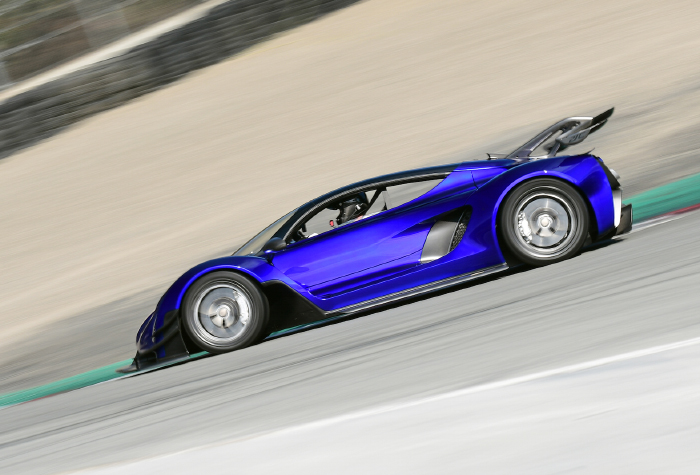McLaren Applied has added American hybrid sports car marque Czinger to its growing list of OEM customers. The independent British engineering and technology pioneer will supply its next-generation IPG5 800V silicon carbide inverter for the Californian manufacturer’s 21C hypercar, set for delivery next year.
The IPG5 provides unrivalled power density, efficiency and motor control. Alongside the world’s most power dense production internal combustion engine and an 800V electric drive, developed by Czinger’s powertrain team, three IPG5 units per vehicle will enable the Czinger 21C to deliver a peak output of 1250hp (932kW).
McLaren Applied is renowned for creating a competitive advantage for its partners through a combination of class-leading hardware and software, derived from decades of innovation in top tier automotive and motorsports applications. In the case of the 21C, the company’s unique skill set allowed Czinger to meet its power density requirements by packaging the IPG5 into a 3.79-litre box weighing just 5.5 kilograms.
“We believe in performance and pathbreaking technology; as such, we are proud to select McLaren Applied as our preferred inverter supplier. Including their high-efficiency inverter in the 21C will optimise the horsepower of our in-house designed powertrain, enhancing the driver experience,” says Lukas Czinger, Co-Founder of Czinger Vehicles.
“Our IPG5 inverter is the culmination of all the know-how and technology we’ve developed in motorsport and automotive over the last 30 years,” comments Nick Fry, Chairman at McLaren Applied. “As soon as we met Czinger we knew we were the right cultural fit for the brand, sharing an unwavering focus on high performance and a can-do approach.
“We believe that high-efficiency inverters that offer higher switching frequencies and unparalleled controllability will play an important part in the transition to electrification, because they add character to vehicles thanks to improvements in packaging and performance.”
The automotive team at McLaren Applied sees silicon carbide as leading what they describe as the ‘third wave’ of electrification. The first involved early pioneers of technology, and we’re currently in the second wave where EVs have broken through to the mainstream. The third stage is efficiency and will see inverter technology rapidly adopt silicon carbide (SiC) semiconductors, especially in 800V architectures and vehicles that need longer range where efficient power electronics are key.
“Efficiency is going to be the battleground. It’s how brands will compete with one another,” Fry added. “If you’re more efficient, you can have a better vehicle. It’s going to be lighter. It’s going to get a better range from the energy you have. It will be quicker to recharge because you need less energy for a given distance. When it comes to efficiency, silicon carbide excels, and will be the defining feature of the third wave.”
The next-generation IPG5 800V silicon carbide inverter can power electric motors to over 350 kW peak, 250 kW continuous, at an unrivalled weight and volume. It has been designed for automotive applications, including direct drive, that are capable of operating high-speed motors efficiently and adhere to ISO 26262 ASIL-D standards.

COMMENTS